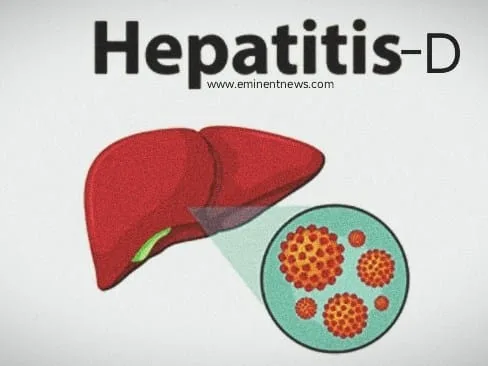Hepatitis D (HDV) is a serious viral infection of the liver caused by the hepatitis D virus.
HDV is different from other hepatitis viruses because it only infects people who already have a hepatitis B virus (HBV) infection. It is sometimes called the “delta virus” and is seen as the most dangerous type of viral hepatitis because of its potential for severe complications.
HDV cannot replicate by itself , it needs HBV to spread, which classifies it as a “satellite virus.” Transmission can happen through simultaneous infection, known as coinfection, or when HDV infects someone who already has HBV, referred to as superinfection.
The World Health Organization (WHO) and the International Agency for Research on Cancer (IARC) have reclassified the Hepatitis D virus (HDV) as cancer-causing in humans. It joins Hepatitis B and C as known causes of liver cancer.
About HDV :
- Hepatitis B, C, and D affect over 300 million people worldwide. They contribute to 1.3 million deaths annually, mainly from liver cirrhosis and cancer.
- HDV infects nearly 5% of people with chronic HBV, which is about 12 million individuals globally.
- High-Risk Populations include residents of Asia, Africa, and the Amazon Basin, where HBV is common. It also affects people who inject drugs and patients on haemodialysis.
- The virus spreads through infected blood, unprotected sex, unsafe injections, or occasionally passes from mother to child during birth.
- Symptoms include fatigue, nausea, abdominal discomfort, dark urine, and yellowing of the skin.
- Treatment: HBV can be managed with lifelong antivirals. The antiviral bulevirtide is now an approved therapy in Europe, along with pegylated interferon.
- HDV can only infect individuals who already have HBV.
- Co-infection or superinfection with HBV increases the risk of liver cancer by 2 to 6 times compared to HBV alone.
- Up to 75% of chronic HDV patients may develop liver cirrhosis within 15 years.
Awareness :
- There is no separate vaccine for HDV. The only way to eliminate HDV is through universal HBV vaccination and testing.
- Hepatitis D (HDV) can only infect people who already have hepatitis B (HBV). For this reason, preventing HDV primarily focuses on stopping HBV infection.
- Hepatitis B Vaccination :The best way to prevent hepatitis D is to get vaccinated against hepatitis B. If you do not get HBV, you cannot get HDV.
- All children and adults at risk of HBV exposure should receive the hepatitis B vaccine.
- Safe Practices to Prevent Bloodborne Transmission : Do not share drug injection equipment, such as needles, syringes, pipes, or straws.
- Practice safe sex by using latex or polyurethane condoms to lower your risk of infection.
- Avoid sharing personal items like razors, nail clippers, toothbrushes, or other things that might have blood on them.
- Ensure that medical, dental, and cosmetic procedures use sterilized equipment.
- Health workers should wear gloves and use barrier precautions when handling blood or bodily fluids.
- Special Precautions : Screen blood and tissue products to lower the risk of transmission in medical settings.
- Pregnant individuals with HBV should make sure their babies get vaccinated and receive preventive treatment on time.
- If Already Infected with HBV . take extra steps to avoid blood and body fluids from others.
- Do not donate blood, organs, semen, or tissue.
- Inform healthcare providers, sexual partners, and close contacts.
- Public Health and Travel : Follow safe practices when traveling to areas where hepatitis B is more common, as the risk of getting both infections is higher.
Important Notes
- No vaccine exists for hepatitis D itself.
- The hepatitis B vaccine does not protect people who already have chronic HBV infection from getting hepatitis D.
- Preventing HBV and reducing harm are essential strategies for preventing HDV.
- By focusing on HBV vaccination and safe practices, we can effectively control the spread of hepatitisD ,visit here
- To Read more health related news link yourself here www.eminentnews.com



























